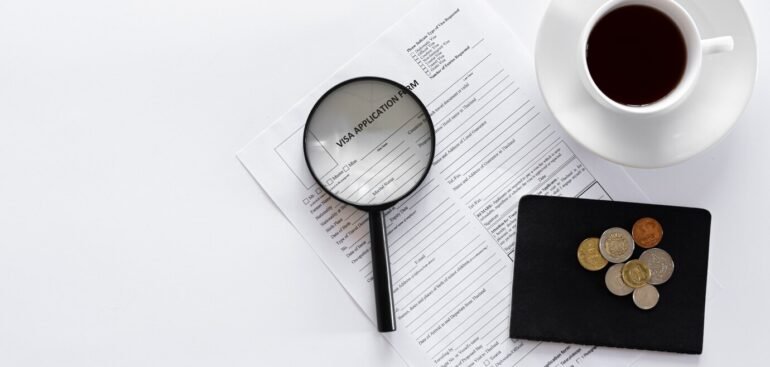Introduction
In an era where financial crimes are increasingly sophisticated, businesses and institutions face an urgent need to safeguard their financial assets. The rise of corporate fraud, embezzlement, and economic mismanagement has heightened the importance of forensic accounting audit services. Unlike traditional audits, which focus primarily on compliance and accuracy, forensic audits delve deep into financial transactions to uncover irregularities, fraudulent activities, and legal violations.
A forensic accounting audit combines investigative techniques with financial expertise to trace misappropriated funds, detect financial misconduct, and provide evidence for legal proceedings. Organizations that fail to conduct forensic audits risk financial losses, legal repercussions, and reputational damage. Given the increasing complexities of financial transactions and the prevalence of fraud, the demand for forensic accounting audit services continues to grow.
In this blog, we will explore the significance of forensic audits, key investigative techniques, case studies of fraud detection, and the role of forensic accountants in legal proceedings. Additionally, we will examine the impact of technology on forensic accounting and provide insights into how businesses can protect themselves from financial fraud.
What Is a Forensic Accounting Audit?
A forensic accounting audit is a specialized audit designed to investigate financial irregularities, detect fraud, and gather evidence for legal purposes. It differs from traditional financial audits in its depth of investigation and legal focus. While traditional audits assess financial accuracy and compliance, forensic audits aim to uncover hidden financial manipulations.
Forensic accountants analyze complex financial data, identify anomalies, and trace the movement of funds to detect fraudulent activities. These audits are commonly conducted in cases of corporate fraud, shareholder disputes, insurance claims, bankruptcy proceedings, and criminal investigations.
Key Objectives of Forensic Accounting Audits
- Fraud Detection– Identifying financial fraud, embezzlement, and asset misappropriation.
- Litigation Support– Providing financial evidence and expert testimony in legal disputes.
- Regulatory Compliance– Ensuring that organizations adhere to financial laws and regulations.
- Risk Management– Assessing financial vulnerabilities and implementing fraud prevention measures.
A forensic accounting audit plays a crucial role in maintaining financial integrity and preventing financial misconduct within organizations.
The Evolution of Forensic Accounting
Forensic accounting dates back to the early 20th century but gained prominence in the 1930s during major financial fraud investigations. One of the most famous cases involved the conviction of Al Capone, where forensic accountants played a key role in uncovering tax evasion.
Over the decades, forensic accounting has evolved into a sophisticated field that integrates financial expertise with investigative techniques. Today, forensic auditors use data analytics, artificial intelligence, and blockchain technology to track financial anomalies and detect fraudulent activities more efficiently.
As financial crimes become more complex, the demand for forensic accounting audit services continues to rise, with businesses, law enforcement agencies, and government institutions relying on forensic accountants for fraud detection and financial compliance.
Key Types of Forensic Accounting Audits
- Fraud Investigation Audits
These audits focus on uncovering fraudulent activities such as embezzlement, payroll fraud, and financial statement fraud. Organizations use fraud investigation audits to detect internal theft, unauthorized transactions, and deliberate financial misstatements.
- Regulatory Compliance Audits
Companies must adhere to financial regulations to avoid legal penalties. A forensic accounting audit ensures that businesses comply with financial reporting standards, tax laws, and anti-money laundering regulations.
- Bankruptcy and Insolvency Audits
Forensic accountants investigate financial records during bankruptcy proceedings to determine whether assets have been fraudulently concealed or transferred. These audits help creditors recover lost funds and ensure transparency in financial disclosures.
- Insurance Claim Audits
Forensic audits verify the legitimacy of insurance claims related to property loss, business interruptions, and liability coverage. Insurance companies use these audits to detect fraudulent claims and minimize financial losses.
- Corporate Governance Audits
These audits assess the internal financial controls and risk management policies of an organization. They help prevent conflicts of interest, financial mismanagement, and ethical violations within corporate structures.
How Forensic Accountants Detect Fraud
Forensic accountants utilize advanced investigative techniques to detect financial fraud. Some of the most effective fraud detection methods include:
- Data Analytics and Artificial Intelligence
Modern forensic accountants use AI-driven analytics to identify suspicious transactions, unusual spending patterns, and hidden financial anomalies. Advanced software programs analyze large volumes of financial data to uncover fraudulent activities.
- Benford’s Law Analysis
Benford’s Law states that the frequency of numbers in naturally occurring datasets follows a predictable pattern. Deviations from this pattern in financial records often indicate manipulation or fraud.
- Forensic Digital Auditing
Digital forensic auditing involves examining electronic records, emails, and encrypted financial data to uncover fraudulent activities. This method is crucial in cyber fraud investigations and financial crimes involving cryptocurrency transactions.
- Lifestyle Audits
Forensic accountants compare an individual’s declared income with their actual lifestyle expenditures. Discrepancies often indicate undisclosed income, tax fraud, or embezzlement.
- Ratio Analysis and Financial Trends
By analyzing financial ratios over time, forensic accountants identify inconsistencies that suggest financial manipulation. Unusual profit margins, revenue growth patterns, and debt ratios often indicate fraudulent reporting.
A forensic accounting audit utilizes these techniques to ensure financial transparency and prevent fraud.
Case Studies: Forensic Accounting in Action
- Enron Scandal
One of the most infamous corporate fraud cases involved the energy company Enron. Forensic accountants uncovered massive accounting fraud, leading to the company’s collapse. The case highlighted the importance of forensic audits in corporate governance.
- Bernie Madoff Ponzi Scheme
Bernie Madoff orchestrated the largest Ponzi scheme in history, defrauding investors of billions of dollars. Forensic accounting investigations revealed the financial irregularities that ultimately led to his conviction.
- Wirecard Fraud Case
German fintech company Wirecard was exposed for fabricating financial statements and inflating revenue figures. A forensic accounting audit revealed missing funds and fraudulent transactions, leading to regulatory intervention.
These cases demonstrate how forensic accountants play a pivotal role in uncovering financial fraud and ensuring corporate accountability.
The Role of Forensic Accountants in Legal Proceedings
Forensic accountants serve as expert witnesses in financial litigation cases. Their responsibilities in legal proceedings include:
- Providing expert testimonyin court regarding financial fraud findings.
- Assisting law enforcementin fraud investigations and evidence gathering.
- Analyzing financial disputesin divorce settlements, corporate lawsuits, and shareholder conflicts.
- Supporting regulatory agenciesin financial compliance cases and tax fraud investigations.
A forensic accounting audit is often critical in legal battles where financial evidence determines the outcome of a case.
Future Trends in Forensic Accounting
The future of forensic accounting will be shaped by advancements in technology and evolving financial regulations. Key trends include:
- AI and Machine Learning in Fraud Detection
Artificial intelligence is revolutionizing forensic accounting by automating fraud detection and financial data analysis. AI-powered algorithms can quickly identify fraudulent transactions and predict financial anomalies.
- Blockchain Technology for Financial Transparency
Blockchain technology provides immutable financial records, reducing the risk of financial manipulation. Forensic accountants are increasingly leveraging blockchain to enhance transparency in financial transactions.
- Global Collaboration Against Financial Crime
International cooperation among forensic accountants, regulatory agencies, and law enforcement will strengthen efforts to combat global financial crimes such as money laundering and terrorist financing.
- Cybersecurity and Digital Forensics
As financial crimes shift to digital platforms, forensic accountants will focus on cybersecurity threats, cyber fraud, and cryptocurrency-related fraud investigations.
Conclusion: Protect Your Finances with Forensic Accounting Audit
A forensic accounting audit is an essential tool for businesses, financial institutions, and individuals to detect fraud, ensure compliance, and safeguard financial assets. By employing advanced investigative techniques and leveraging technology, forensic accountants help prevent financial misconduct and provide crucial evidence in legal disputes.
If you suspect financial irregularities or need expert forensic audit services, contact us today at (877)-399-2995 or visit Mortgage Audits Online to learn more. Secure your financial future with confidence!







